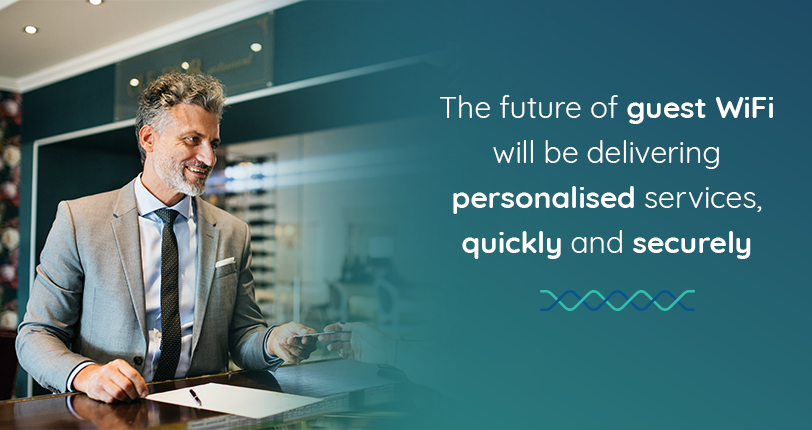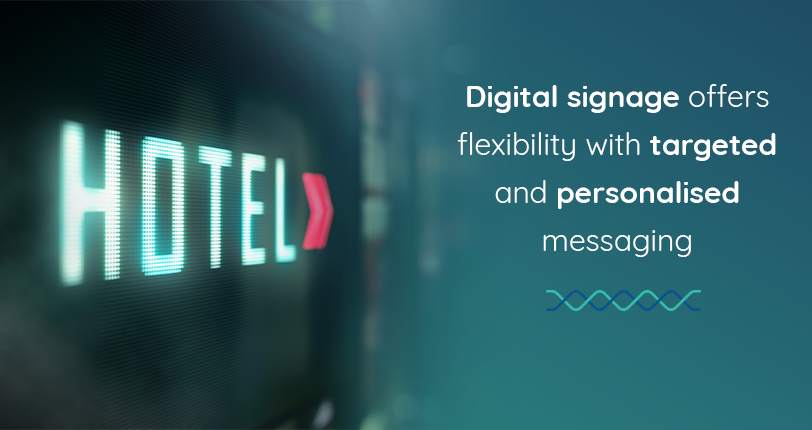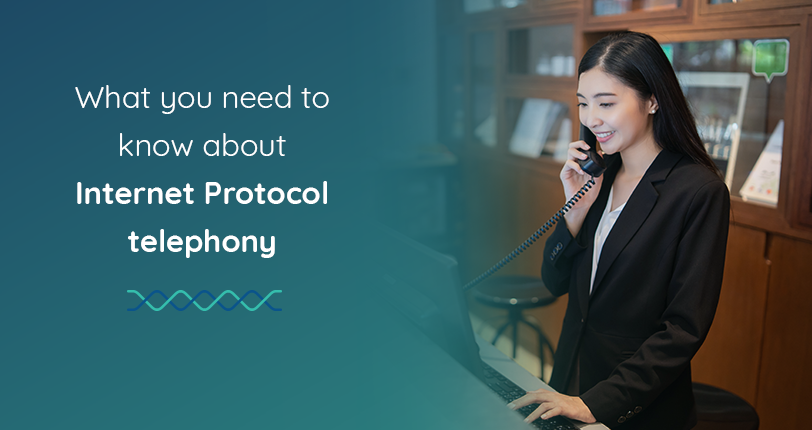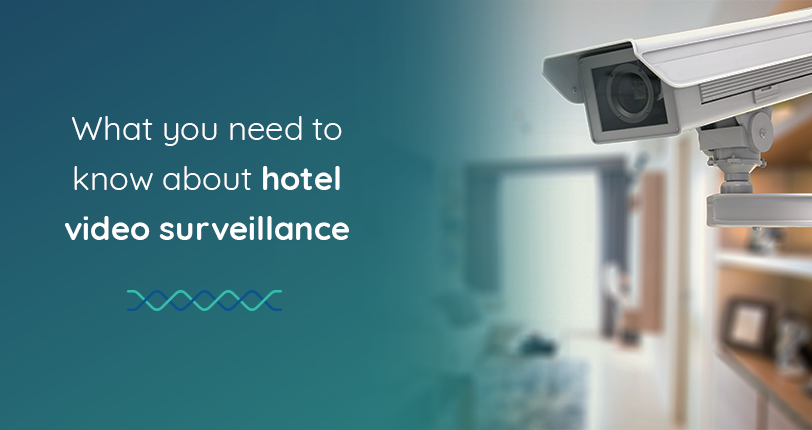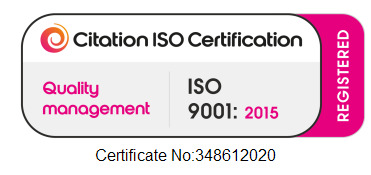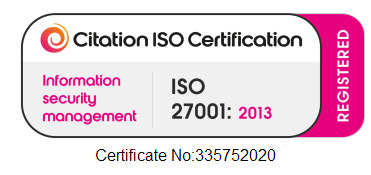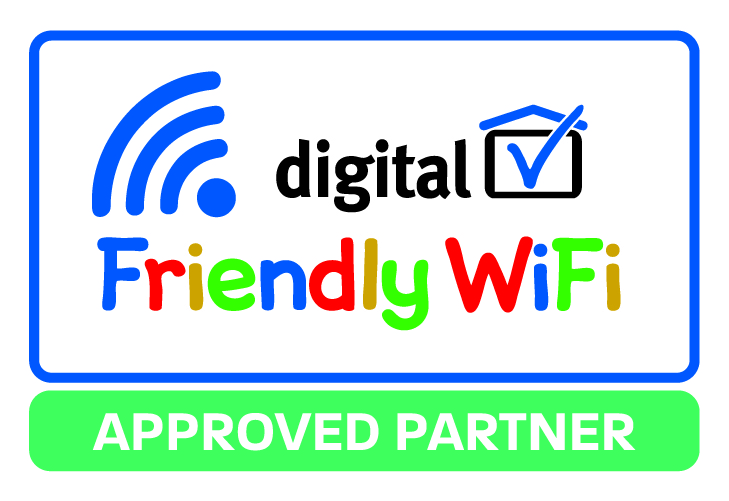The future of guest WiFi will be about delivering personalised services, quickly and securely. Hotel WiFi has a poor reputation as guests have historically experienced slow connections, patchy coverage and are attuned to much-publicised security concerns. Today, fast and secure ‘connectivity’ in a hotel is expected just as running water or electricity is expected and demands on Guest WiFi are greater than ever, with as many as five devices drawing on the connectivity from a single guest.
Networks will need to overcome the historic slow connections, patchy coverage to enable delivery of personalised services leading to significant benefits to the hotelier and guests. We’ve outlined our predictions for guest WiFi below:
PAN (Personal Area Network) – is this the future?
A PAN is the local network of personal devices or gadgets within the environment of an individual user. The guest is assigned their own private network, a VLAN (Virtual Local Area Network) enabling them to connect to all their own devices as well as Internet access.
A PAN. It is delivered through the hotel ́s WiFi network and allows the guest to use and control their own devices and content in a secure way. The idea is to create a similar network to what you have at home within the SSID and security settings. These are a relatively new service only available from a handful of WiFi providers and portals such as Vital WiFi and Hotspot Manager, but will become more mainstream in the future.
Guest WiFi and BYOD (Bring Your Own Device)
Whilst many hotels provide in-room guest tablets for accessing the hotel’s digital services, most guests prefer to access content via their own devices, rather than a hotel’s entertainment portal. Therefore, features like ‘Screen Mirroring’ need to be catered for.
Technology means travel is a “home-from-home experience” reports Travelport. Over 50% of global travellers use the same media apps whilst travelling as they do at home. More than 60% want to use digital room keys and check into a hotel via an app and 71% will avoid a hotel that charges for WiFi concludes the report.
Smartphone reliance
Recent surveys show the importance of the smartphone to the guest. The Expedia®/Egencia Mobile Index reveals that travellers consider their smartphone to be the single most indispensable item they carry with them when they travel, ahead of their toothbrush, deodorant and driver’s license.
The majority of consumers in our study are willing to put their money where their mouths are. For example, 66% of hotel guests say they’re would pay more for the technology services they deem important — and ‘free’ WiFi, they tell us, is very important. Free is in the eye of the beholder. If room rates increase but WiFi isn’t an up-charge, our data suggests that the customer will be more likely to stay with you again.”
Increase in conference and event requirements
Delegate WiFi Access
Poor WiFi experiences can kill an event. A hotel’s unified network should therefore be configured to cater for a high volume of simultaneous connections. Organisers need to offer a reliable and robust network for their fee-paying exhibitors and delegates need reliable access to catch up on work.
Friction-free event check-in
A hotel’s WiFi network can be configured to accommodate mobile phone event check-in systems which are now becoming ubiquitous in the event industry. Apps like Zkipster (used by Red Bull and HBO), registers delegates as they arrive. CheckInEasy alerts organisers when a VIP arrives. Social Tables (used by Forbes and Dow Jones) claims to be the fastest and easiest to use. The established event management software vendors have mobile event check-in such as CVENT On Arrival.
Virtual site inspections
Hotels such as Marriott offer live virtual site inspections using virtual reality and 360-degree photography technology to immerse event planners into their space remotely. Those hotels that adopt such solutions will of course have a competitive edge over those that do not. A robust WiFi network is essential for this.
Wayfinding, beacons and indoor positioning systems
For large hotels, conference centres and stadiums, the unified network can be extended to help navigation. Indoor positioning systems (IPS) have been described as GPS on steroids. They are used with very large indoor venues to locate people or objects and can be deployed to assist in wayfinding with interactive maps, networking, locating booths, and so on. IPS can work with a smartphone interacting with asset tags or beacons that transmit data. Beacons report the device location data which is then accessed via cloud-based application program interfaces (API), mobile apps, integrated CRM software, etc. IPS technologies include ultrasound, radio frequency (RF), WiFi, and Bluetooth low energy (BLE).
Get your WiFi up to speed today
Although not an exhaustive list, it’s obvious that hoteliers will need to rise to the challenge of creating frictionless, digital interaction for guests. There is no excuse for poor Guest WiFi. Hotels who fail to invest in this, risk losing customers. It is estimated that 80% of guests will not return to a hotel that delivers a bad technology experience.
If you’re looking to upgrade your system to a unified network that can help you face these challenges, Vital WiFi can help. Investment in a unified network need not break the bank, we are offering free installation to any hoteliers impacted by the Coronavirus crisis, with a monthly fee from as little as £4 per month per guest bedroom. What’s more, you won’t pay a penny for the first three months.
Contact us now for more information on our managed service offer and to arrange your free installation today.
*T&C's apply.
